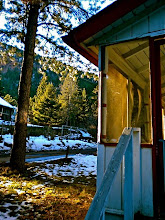
Here are my top ten books of 2009:
1. The Young Inferno by John Agard
With the help of Aesop, a hoodied hero braves the circles of Hell to find his true love.
2. Wintergirls by Laurie Halse Anderson
Cassie and Lia were best friends who competed to see which of them could be the skinniest. But now that Cassie is dead how is Lia to compete with a ghost?
3. Geektastic: Stories from the Nerd Herd ed. Holly Black and Cecil Castellucci
Every self-proclaimed geek will find at least one character with whom to identify in this collection of short stories about everything nerdy from Klingons to bookworms, baton-twirlers to LARPers.
4. All the Broken Pieces by Ann E. Burg
In this moving story told in verse, 12-year-old Matt Pin is a Vietnamese boy who was adopted by a white couple after the Vietnam War.
5. Catching Fire by Suzanne Collins
Even though Katniss and Peeta survived the The Hunger Games, their troubles with the capitol have just begun.
6. The Magician’s Elephant by Kate DiCamillo
When a fortuneteller tells Peter an elephant will lead him to his sister, he can't believe it. After all, his sister is supposed to be dead, and where would he get an elephant anyway? But then, an elephant appears...
7. Scones and Sensibility by Lindsay Eland
In the tradition of Anne of Green Gables, and in the romantic spirit of Sense and Sensibility; this sweet novel tells the story of Polly, a 21st century girl who wishes she had been born earlier.
8. Heroes of the Valley by Jonathan Stroud
Halli Sveinnson is an unlikely hero in a land where heroes are revered.
9. Creature of the Night by Kate Thompson
The story of a modern troubled teen and the fading mythology of Ireland.
10. Leviathan by Scott Westerfeld
A steampunk WWI adventure where the conflict is between Clankers and Darwinists.
And my top ten of the decade:
2000 – The Body of Christopher Creed by Carol Plum-Ucci
Everyone at school has an "I beat up Chris Creed" story, so when the suicide note appears and he disappears, it looks like everyone is to blame. But if he is dead, where is his body?
2001 – Feeling Sorry for Celia by Jaclyn Moriarty
This charming Australian epistolary novel follows the story of Elizabeth and her tumultuous best friend, Celia.
2002 – Lucy the Giant by Sherri L. Smith
Lucy leaves her violent home life behind and passes as an adult in order to obtain a job on a crabbing boat.
2003 – A Northern Light by Jennifer Donnelly
Mattie has a summer job at a fancy hotel in the Adirondacks. When the drowned body of a young female guest is discovered, Mattie must decide whether or not to reveal the letters the woman gave to her and asked her to burn. Based on the real-life murder that inspired An American Tragedy by Theodore Dreiser.
2004 – How I Live Now by Meg Rosoff
Anorexic Daisy is shipped to England to live with her cousins in the hopes that a change of scenery will be good for her. While she is there, World War III begins. Suddenly Daisy is struggling for her life in a way she never expected.
2005 – Dark Sons by Nikki Grimes
This novel in free verse tells parallel stories of Ishmael from the Old Testament, and Sam, a modern-day teen whose father has married a younger white woman and has a new baby.
2006 – Book Thief by Markus Zusak
Death narrates this haunting novel about WWII and the Holocaust.
2007 – The Absolutely True Story of a Part-Time Indian by Sherman Alexie
Alexie's first foray in the world of Young Adult literature gave us this semi-autobiographical account Arnold Spirit, a Spokane Indian who leaves the reservation for a better education.
2008 – The Hunger Games by Suzanne Collins
In a future dystopian America, twelve districts are controlled by an all-powerful capitol. Each year two teens from each district are randomly chosen to participate in a televised fight to the death.
2009 – Leviathan by Scott Westerfeld
Looking forward to 2010!



